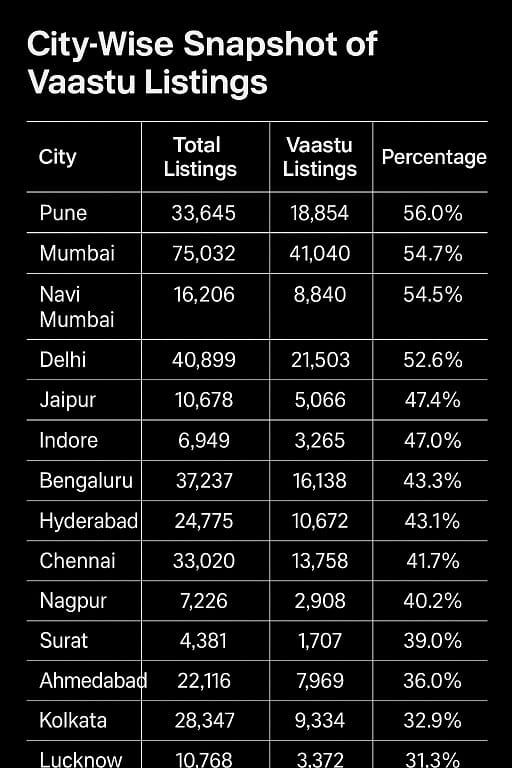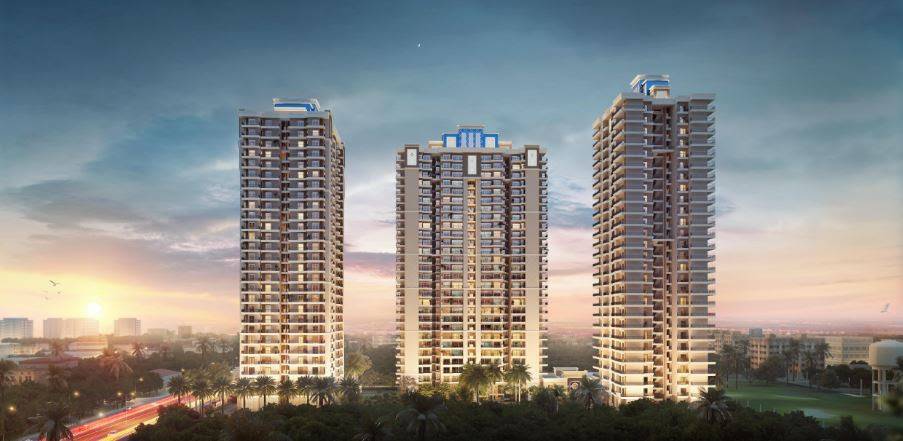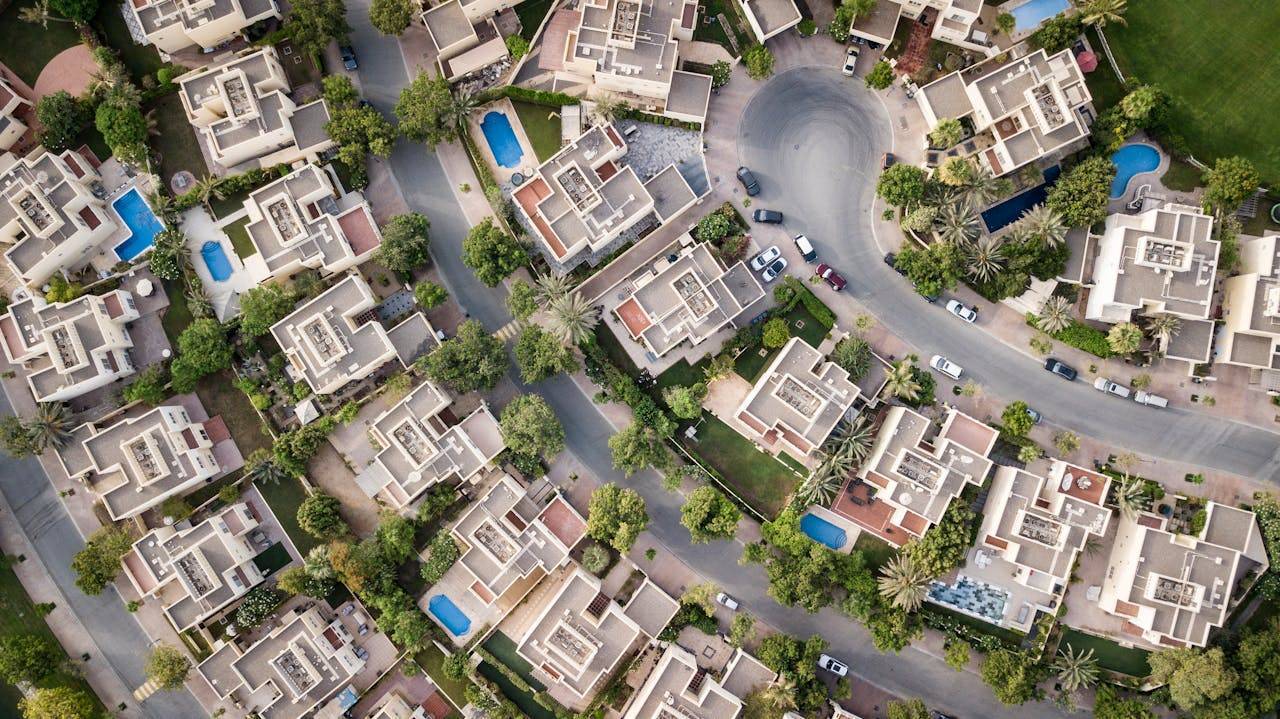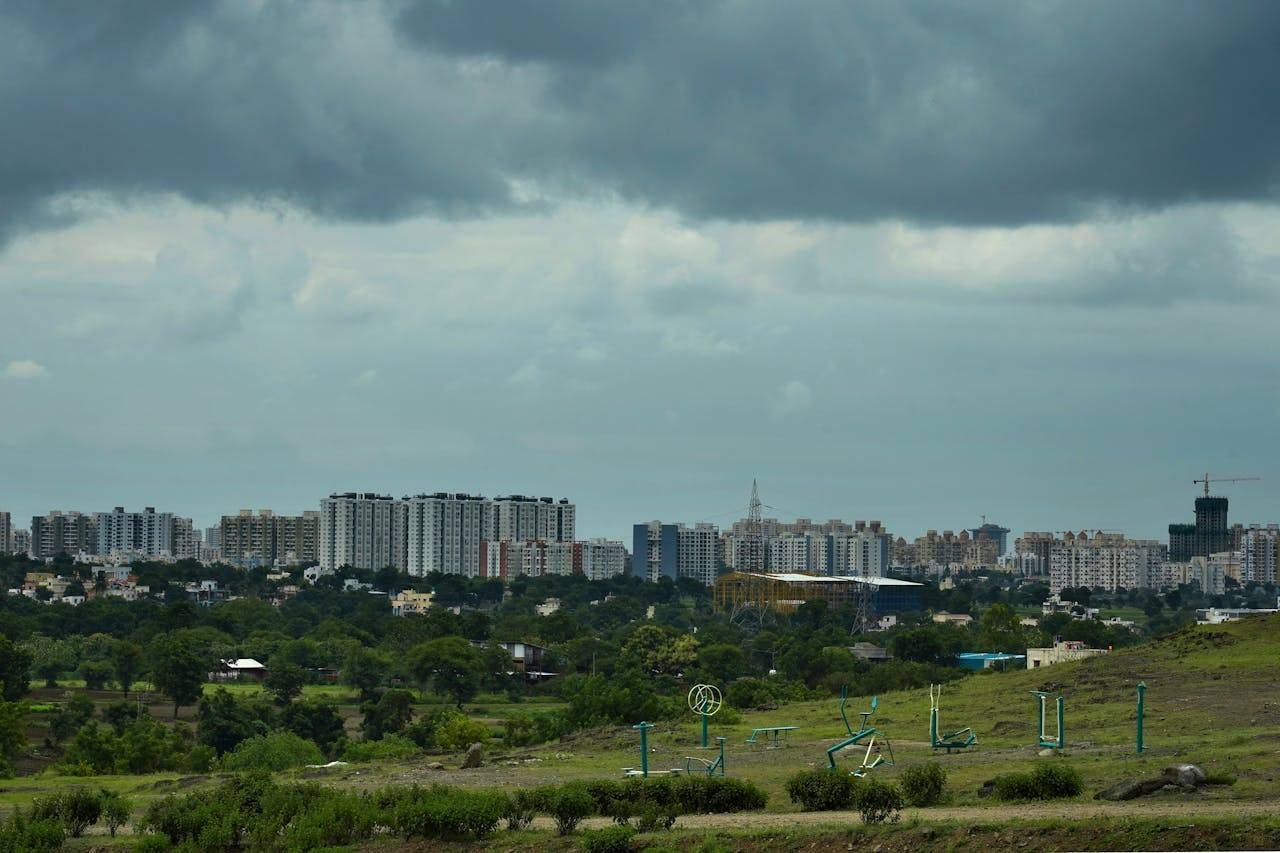Pune has emerged as the top city in India for Vaastu-compliant housing, with 56% of homes currently listed for sale adhering to the principles of Vaastu Shastra, according to fresh listing data aggregated from property portal 99acres and analyzed by eXp India. Of the 33,645 properties on sale, 18,854 are described as Vaastu-compliant, underscoring a growing trend among homebuyers to integrate traditional architectural principles with modern living requirements.
Close behind Pune are metro markets that combine premium housing with cultural and traditional preferences. Mumbai records 54.7% of its homes as Vaastu-compliant, while Navi Mumbai registers 54.5%. The national capital, Delhi, shows 52.6% availability, and Bengaluru reports 43.3%. Jaipur completes the top five with 47.4% of listings adhering to Vaastu principles. Other cities with high availability include Indore at 47%, Hyderabad at 43.1%, and Chennai at 41.7%.
In contrast, cities such as Lucknow and Kanpur lag significantly behind. Only 31.3% of homes listed in Lucknow are Vaastu-compliant, while in Kanpur, the proportion drops to just 16.9%. This indicates that demand for Vaastu-compliant homes is unevenly distributed, largely reflecting differences in new supply pipelines, marketing emphasis, and urban demographics.

A Vaastu-compliant home is designed according to Vaastu Shastra, an ancient Indian science of architecture that seeks to harmonize living spaces with natural elements and energy flows. By aligning the orientation, layout, and spatial organization of homes with these principles, such properties are believed to enhance positivity, peace, and prosperity for occupants. Typical features include east- or north-facing main entrances, placement of the kitchen in the southeast, symmetrical floor plans, natural light optimization, and strategic positioning of staircases and elevators. However, the level of adherence can vary, and not all listings may reflect full professional certification.
Sam Chopra, President of eXp India, highlighted that buyers are increasingly looking for homes that combine traditional Vaastu principles with modern living. He explained that their analysis shows this demand is widespread, especially in markets such as Pune and Mumbai, and Vaastu-compliant homes are expected to continue attracting strong interest from both domestic and international buyers.
Several factors contribute to Pune’s leadership in Vaastu-friendly housing. The city has witnessed a rapid residential construction boom over the past decade, with many newer projects planned and marketed specifically to meet Vaastu demand. Pune’s demographic mix of young professionals and established families also favors housing that blends modern amenities with cultural continuity. Developers find it cost-effective to incorporate basic Vaastu features during the planning stage rather than attempting retrofitting later.
Metro markets such as Mumbai and Navi Mumbai highlight that the desire for Vaastu-compliant homes extends beyond affordability or regional preferences. In high-priced markets, a Vaastu label can be a differentiator for buyers who have the option to choose from multiple properties. Delhi and Bengaluru show that the trend is pan-India, reflecting both cultural and practical considerations.
The rise of Vaastu-compliant homes carries implications for pricing and resale. Properties adhering to these principles in premium micro-markets may command higher prices or transact faster due to the combination of practical design elements and buyer sentiment. Resale liquidity is also improved in metros where cultural alignment is valued.
In contrast, smaller cities and under-served regions present development opportunities. Cities such as Kanpur and Lucknow have limited Vaastu-compliant inventory despite potential buyer interest. Developers targeting these markets can differentiate projects through certified Vaastu plans, potentially commanding first-mover pricing advantages.
For homebuyers, the message is clear: Vaastu-compliant homes offer a blend of traditional design and modern functionality, particularly in Pune, Mumbai, and Delhi. Buyers are advised to examine the specific Vaastu features, architectural certifications, and floor plan details before making purchase decisions, as not all listings may reflect rigorous adherence.









.png)